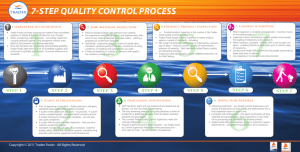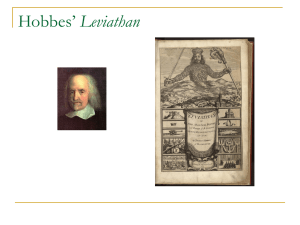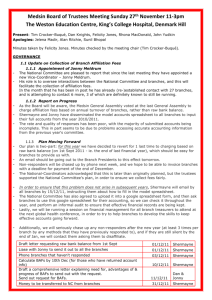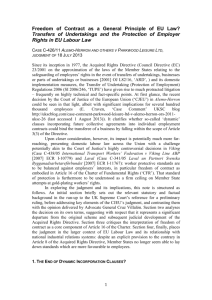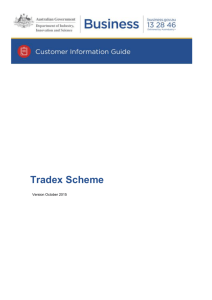Case Felicity v Tradex Felicity is employed by the company Tradex
advertisement
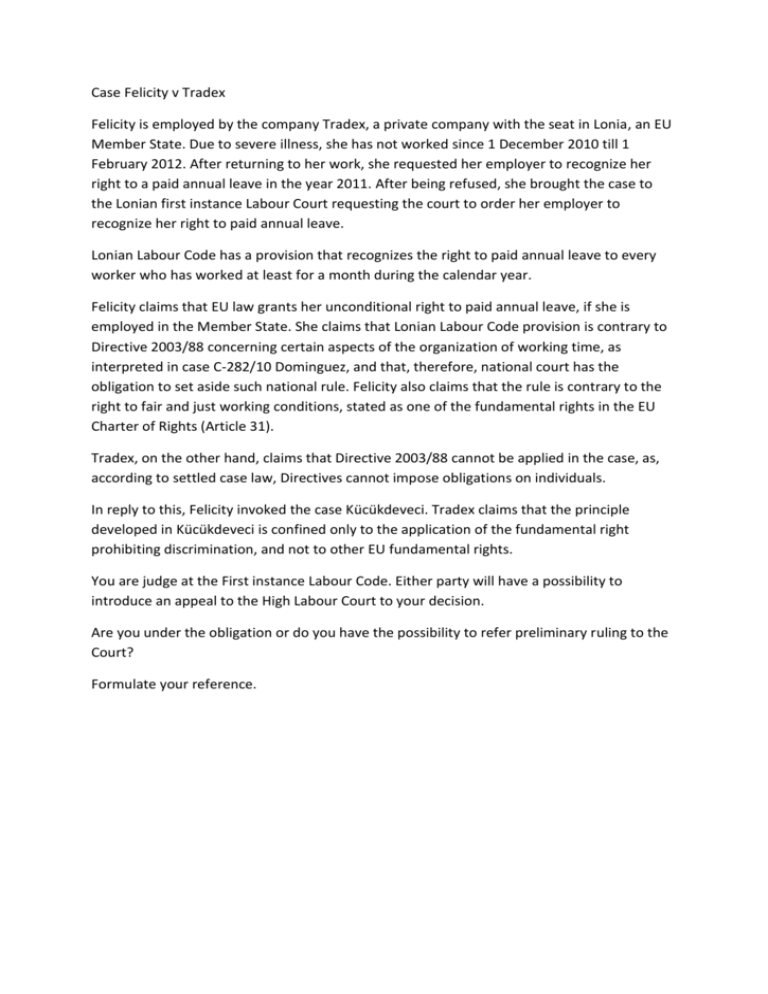
Case Felicity v Tradex Felicity is employed by the company Tradex, a private company with the seat in Lonia, an EU Member State. Due to severe illness, she has not worked since 1 December 2010 till 1 February 2012. After returning to her work, she requested her employer to recognize her right to a paid annual leave in the year 2011. After being refused, she brought the case to the Lonian first instance Labour Court requesting the court to order her employer to recognize her right to paid annual leave. Lonian Labour Code has a provision that recognizes the right to paid annual leave to every worker who has worked at least for a month during the calendar year. Felicity claims that EU law grants her unconditional right to paid annual leave, if she is employed in the Member State. She claims that Lonian Labour Code provision is contrary to Directive 2003/88 concerning certain aspects of the organization of working time, as interpreted in case C-282/10 Dominguez, and that, therefore, national court has the obligation to set aside such national rule. Felicity also claims that the rule is contrary to the right to fair and just working conditions, stated as one of the fundamental rights in the EU Charter of Rights (Article 31). Tradex, on the other hand, claims that Directive 2003/88 cannot be applied in the case, as, according to settled case law, Directives cannot impose obligations on individuals. In reply to this, Felicity invoked the case Kücükdeveci. Tradex claims that the principle developed in Kücükdeveci is confined only to the application of the fundamental right prohibiting discrimination, and not to other EU fundamental rights. You are judge at the First instance Labour Code. Either party will have a possibility to introduce an appeal to the High Labour Court to your decision. Are you under the obligation or do you have the possibility to refer preliminary ruling to the Court? Formulate your reference. Relevant EU law: Article 31 of the EU Charter of Fundamental Rights Fair and just working conditions 1. Every worker has the right to working conditions which respect his or her health, safety and dignity. 2. Every worker has the right to limitation of maximum working hours, to daily and weekly rest periods and to an annual period of paid leave. Article 7 of the Directive 2003/8 “1. Member States shall take measures necessary to ensure that every wotker is entitled to paid annual leave of at least four weeks in accordance with the conditions for entitlement to, and granting of, such leave laid down by national legislation and/or practice.” Case C-282/10 Dominguez, paragraph 21: “It follows from the foregoing that Article 7(1) of Directive 2003/88 must be interpreted as precluding national provisions or practices which make entitlement to paid annual leave conditional on a minimum period of ten days’ or one month’s actual work during the reference period.”








